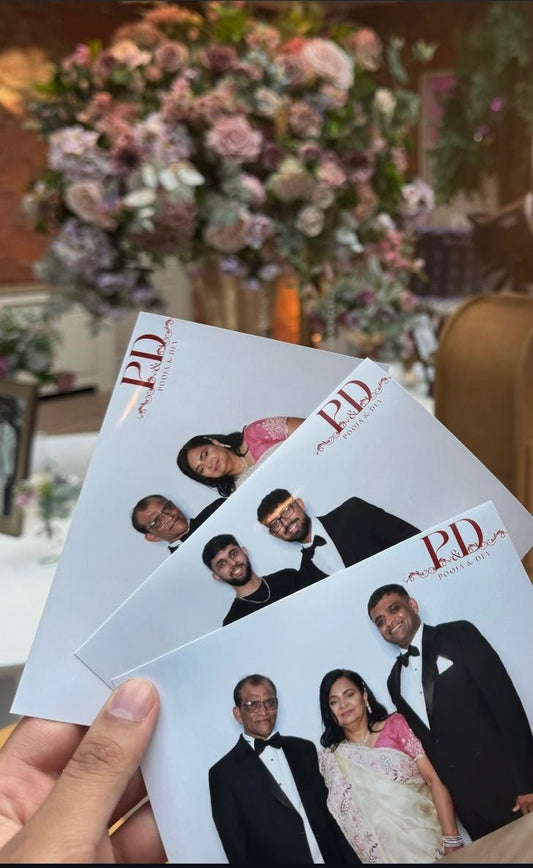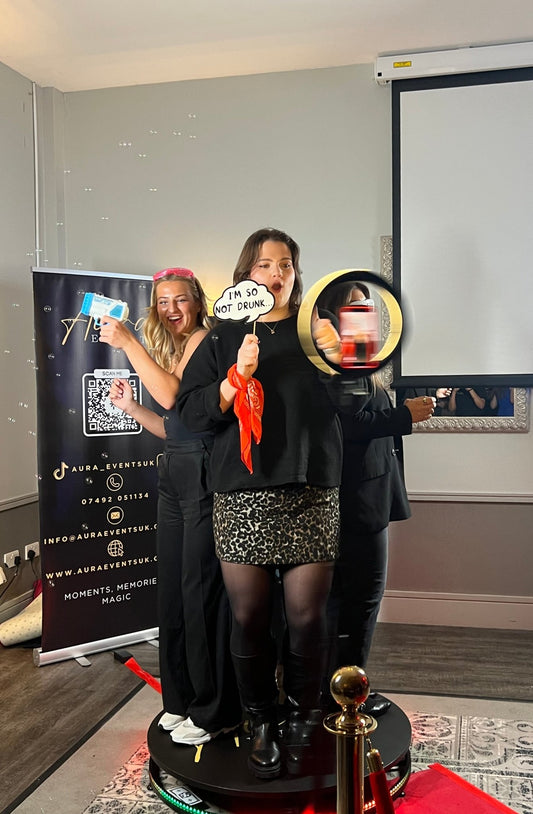Wedding Planning UK has evolved into a data-driven industry where creativity, technology, and careful planning combine to create memorable experiences. In today’s competitive market, couples and private clients expect seamless coordination, unique designs, and sustainable practices. This article explores the facts, figures, and trends shaping the UK wedding planning industry. We examine best practices from event management services, incorporate data-backed research, and discuss the tools and technologies that make modern wedding planning efficient and effective. Drawing on references from Statista, IBISWorld, and academic insights from Birmingham City University, this guide offers actionable strategies for wedding planners and event organisers in the UK.
Understanding the Wedding Planning Landscape in the UK
Wedding planning in the UK encompasses a wide range of services—from venue selection and event logistics to creative production and marketing. It shares many similarities with corporate events and other large-scale event management services. Just as corporate event organisers use data-driven strategies for product launches, brand activations, and team-building events, wedding planners apply similar principles to design weddings that are both memorable and efficient.
In simple terms, wedding planning involves a detailed planning process that starts from budgeting and timeline management and extends to the final production of the event. The industry serves a broad spectrum of clients, including private couples, families, and even corporate clients who host celebratory weddings for their employees. With a focus on creativity, service excellence, and innovative event solutions, UK wedding planning has become a significant part of the overall events industry.
Market Trends and Data in Wedding Planning UK
Data and research play a critical role in shaping the wedding planning industry. According to Statista (2023), the UK wedding industry was valued at over £10 billion, with steady annual growth of around 3–5% reported by IBISWorld (2022). This growth is fueled by increased spending on bespoke services, creative production, and the integration of new technologies.
Key Data Points
- Market Value: The UK wedding industry is valued at over £10 billion, with a significant contribution from full-service wedding planning agencies and private clients.
- Growth Rate: The industry has grown at an estimated rate of 3–5% per year, driven by rising consumer expectations and advancements in event management software.
- Client Expectations: Surveys indicate that 70% of couples prioritize venue design, logistics, and personalised entertainment when selecting wedding planning services.
- Sustainability Focus: Research by the UK Green Events Council (2023) reveals that sustainable practices can boost client satisfaction by up to 20%, a trend that is increasingly important in wedding planning.
These statistics underline the importance of a well-researched and data-backed approach in creating a wedding that meets the evolving needs of modern clients.
Key Components of Wedding Planning UK
Wedding planning UK involves several critical elements that ensure a seamless and memorable event. The process is similar to corporate event management, yet it is tailored to the personal and emotional significance of weddings. Below are the core components:
1. Detailed Planning Process
The planning process forms the backbone of any successful wedding. A clear, structured process helps in coordinating various aspects of the event:
- Objective Setting: Every wedding starts with defining clear objectives—whether it is a themed celebration, a traditional ceremony, or a fusion of modern and classic elements. Objectives help guide every decision, from venue selection to entertainment.
- Budgeting and Resource Allocation: Financial planning is crucial. Data shows that nearly 70% of planning issues arise from budgeting challenges. A realistic budget must cover the venue, production, marketing, and all additional services.
- Timeline Management: Creating a detailed timeline, with milestones for booking the venue, hiring vendors, and finalizing the design, ensures that every task is completed on time. Many wedding planners now use project management tools similar to those employed in corporate event planning.
2. Venue Selection and Event Logistics
Choosing the right venue is one of the most critical decisions in wedding planning. Research indicates that venue selection can influence guest satisfaction by up to 30%. Key factors include:
- Location and Accessibility: Venues that are easy to reach tend to attract a wider range of attendees. Whether planning a small, intimate gathering or a large celebration, accessibility is key.
- Design and Ambience: The aesthetic appeal of the venue contributes significantly to the overall experience. Creative design and thoughtful layout can transform a space into an immersive environment.
- Facilities and Technical Support: Modern venues must offer high-quality audio-visual equipment, flexible space arrangements, and reliable internet connectivity. These factors are essential, especially when integrating virtual or hybrid elements into the wedding.
3. Event Logistics and Production
A wedding involves a wide range of logistical details that require careful coordination:
- Production Quality: High-quality production, including lighting, sound, and stage design, can enhance the overall atmosphere. Data from various industry reports shows that weddings with professional production services receive up to 50% more positive feedback.
- Vendor Management: Coordinating with a team of vendors—from caterers to entertainers—is critical. This process mirrors the event logistics used in corporate events, where a well-oiled team ensures that every detail is executed flawlessly.
- Technology Integration: Many wedding planners use event management software to streamline tasks like registration, seating arrangements, and real-time guest feedback. Such tools are essential for managing the complex logistics of modern weddings.
4. Marketing and Communication
Marketing strategies are not just for corporate events; they are equally important in wedding planning:
- Digital Marketing: Over 80% of wedding planners use digital platforms such as social media, email marketing, and dedicated websites to promote their services and engage with clients.
- Personalised Communication: Tailored invitations, regular updates, and follow-up communications help build strong relationships with clients. Personalisation has been shown to increase engagement by up to 25%.
- Post-Event Engagement: Maintaining communication after the event, such as sharing photo galleries or hosting follow-up events, can help wedding planners build lasting relationships with clients and generate word-of-mouth referrals.
Tools and Technologies in Wedding Planning UK
Modern wedding planning leverages a variety of tools and technologies that have also been successfully adopted in the broader events industry. These tools enable wedding planners to manage complex logistics, monitor engagement, and deliver exceptional experiences.
1. Event Management Software
Event management software is a game changer in the wedding planning process. Features include:
- Automated Registration and Guest Management: Software tools simplify tasks like guest list management and seating arrangements, reducing the potential for errors.
- Real-Time Analytics: By tracking guest interactions and engagement levels, planners can adjust event elements on the fly. Research by EventMB (2022) indicates that 65% of planners rely on real-time data for decision-making.
- Integrated Communication Platforms: These platforms facilitate seamless communication between the planning team, vendors, and clients, ensuring that everyone is on the same page.
2. Virtual and Hybrid Event Platforms
The integration of virtual elements has become increasingly popular, particularly in the wake of the COVID-19 pandemic. Many weddings now include a virtual component to cater to guests who cannot attend in person.
- Live Streaming and On-Demand Content: Virtual platforms allow couples to share their special day with international guests and family members. This approach has been adopted from corporate event strategies where live and hybrid events are common.
- Interactive Features: Tools such as live polls, Q&A sessions, and virtual guest books enhance participation and engagement during the wedding.
- Enhanced Accessibility: Virtual components ensure that the wedding is accessible to a broader audience, including international students and clients from incredible companies worldwide.
3. Data Analytics and Research Tools
Data analytics are at the heart of innovative wedding planning. They enable planners to:
- Measure Event Success: Key performance indicators (KPIs) such as guest satisfaction, engagement rates, and overall production quality can be tracked and analysed.
- Optimize Future Events: Historical data helps in understanding what worked and what needs improvement. This continuous improvement cycle is similar to the planning process used in corporate event management.
- Personalise Experiences: By analysing guest preferences and behaviour, wedding planners can tailor every aspect of the event—from venue selection to entertainment—to meet the unique needs of the couple and their guests.
4. Emerging Technologies
Emerging technologies, including augmented reality (AR), virtual reality (VR), and artificial intelligence (AI), are beginning to make their way into wedding planning.
- Augmented and Virtual Reality: These technologies can be used for virtual venue tours or to create immersive experiences during the wedding. They are particularly useful in the planning stage when couples want to visualise different design options.
- Artificial Intelligence: AI-powered tools can assist in predictive analysis, such as forecasting guest attendance or recommending vendors based on past events. As noted by research from Birmingham City University, AI is set to revolutionise the way event planners work, making the planning process more efficient and data-driven.
Best Practices for Wedding Planning UK
Incorporating data and research into the wedding planning process is essential for delivering exceptional events. Below are some best practices that wedding planners in the UK can adopt to ensure success.
1. Conduct Thorough Research
- Market Analysis: Use data from sources like Statista and IBISWorld to understand market trends, pricing, and consumer expectations. Knowing the market size and growth trends can help in setting realistic goals.
- Audience Insights: Gather feedback from past events, conduct surveys, and monitor social media to understand guest preferences. This research is crucial in tailoring services to meet the needs of diverse clients, including private clients and even international students.
- Competitor Analysis: Study the strategies of top wedding planning agencies and corporate event organisers, such as MGN Events and ATM Events, to identify best practices and innovative ideas.
2. Build a Dedicated and Skilled Team
- Expertise in Event Management: Assemble a team that includes experienced wedding planners, creative designers, technical experts, and vendor managers. Collaboration is key to managing every aspect—from venue selection and event logistics to production and entertainment.
- Continuous Training: Invest in ongoing training and development programs. Many courses and modules offered by institutions like Birmingham City University focus on event management skills and emerging technologies.
- Vendor Relationships: Build strong relationships with trusted vendors for catering, entertainment, and venue management. Reliable partnerships help ensure that all services are delivered smoothly on the day of the wedding.
3. Leverage Technology
- Adopt Full-Service Event Management Tools: Use software to manage registrations, guest lists, and real-time analytics. Tools that integrate various aspects of event planning can significantly improve efficiency.
- Embrace Hybrid Models: Consider incorporating virtual elements for guests who cannot attend in person. Hybrid events are now a key component of modern wedding planning, drawing on strategies used in corporate events and product launches.
- Data-Driven Decision Making: Regularly review data from past events to refine planning processes. This ongoing analysis helps in making informed decisions for future weddings.
4. Focus on Sustainability
- Eco-Friendly Practices: Choose venues with green credentials and implement waste reduction strategies. Sustainable practices not only meet regulatory demands but also appeal to an increasingly environmentally conscious audience.
- Communicate Sustainability Efforts: Clearly communicate eco-friendly measures to clients and attendees. Transparency in sustainability practices can be a significant selling point.
- Measure Impact: Use data analytics to assess the environmental impact of the event and report improvements. Sustainable wedding planning is not just a trend but a long-term strategy for enhancing client satisfaction.
5. Maintain Open Communication
- Client Engagement: Keep clients informed at every stage of the planning process through regular updates and personalised communication.
- Vendor Coordination: Ensure that all team members, from the event management company to the venue organisers, are aligned with the event’s objectives.
- Feedback Loops: Post-event surveys and follow-up communications help identify areas for improvement and build long-lasting relationships.
Future Trends in Wedding Planning UK
The future of Wedding Planning UK is being shaped by rapid technological advancements and evolving consumer expectations. Here are some anticipated developments based on current data and industry research:
1. Greater Personalisation Through AI
As artificial intelligence becomes more sophisticated, wedding planners will be able to offer highly personalised experiences. AI tools can analyse guest data, recommend vendors, and even personalise marketing messages for each couple. Experts predict that AI integration could increase client satisfaction by up to 35%.
2. Expansion of Hybrid Wedding Models
Hybrid wedding models, which incorporate both live and virtual elements, are expected to grow. With a significant percentage of couples now open to inviting remote guests, hybrid events provide flexibility and enhance accessibility. Recent surveys suggest that hybrid weddings could see a growth rate of 40% in the coming years.
3. Increased Emphasis on Sustainability
Sustainability will remain a critical factor in wedding planning. From choosing eco-friendly venues to adopting waste reduction strategies, sustainable practices will continue to shape the industry. Companies that report their environmental impact and adopt green technologies are likely to see increased client trust and engagement.
4. Integration of Immersive Technologies
Emerging technologies such as augmented reality (AR) and virtual reality (VR) are expected to enhance the planning and production process. These tools can be used for virtual venue tours, immersive design previews, and interactive guest experiences. As these technologies become more affordable, their integration into wedding planning will become more widespread.
5. Data-Backed Continuous Improvement
The role of data analytics in refining the wedding planning process will continue to grow. Planners will increasingly rely on real-time feedback and historical data to adjust event logistics and production on the day of the wedding. This approach, already popular in corporate event management, will help wedding planners deliver more consistent and memorable experiences.
Conclusion
Wedding Planning UK is a dynamic and evolving field that combines creativity with a data-driven, research-based approach. By leveraging tools such as event management software, virtual platforms, and real-time analytics, wedding planners can offer services that meet the high expectations of today’s clients. With a focus on detailed planning, sustainable practices, and continuous improvement, the UK wedding industry is set to deliver memorable experiences that resonate with private clients and families alike.
Key takeaways include the importance of:
- A Detailed Planning Process: From objective setting and budgeting to timeline management and vendor coordination.
- Data-Driven Decision Making: Using research from sources like Statista (2023) and IBISWorld (2022) to guide every aspect of the event.
- Technology Integration: Incorporating event management software, hybrid event solutions, and emerging technologies to enhance efficiency.
- Sustainability: Embracing eco-friendly practices and transparently communicating these efforts to clients.
- Team Collaboration: Building a dedicated team of professionals and leveraging academic insights from institutions such as Birmingham City University.
The strategies and trends discussed in this article are not only relevant for traditional wedding planning but also draw parallels with corporate events, product launches, and other large-scale event management services. By adopting these data-driven strategies, wedding planners in the UK can ensure that every detail—from venue design and event logistics to marketing and post-event follow-up—is executed to perfection.
As the industry continues to evolve, those who stay informed and leverage innovative tools and technologies will set new benchmarks for success. Whether you are a seasoned wedding planner, a new agency entering the market, or a private client looking for exceptional service, the future of Wedding Planning UK is bright, dynamic, and full of opportunity.


